How Elon Musk, a tech leader, became the head of government.
Elon Musk is well-known throughout the world for creating powerful tech firms like SpaceX and Tesla. Musk has also emerged as one of the most talked-about politicians in the US in recent years. He switched his allegiance from Democrats to former President Donald Trump. Among the most significant shifts in contemporary political history is this one.
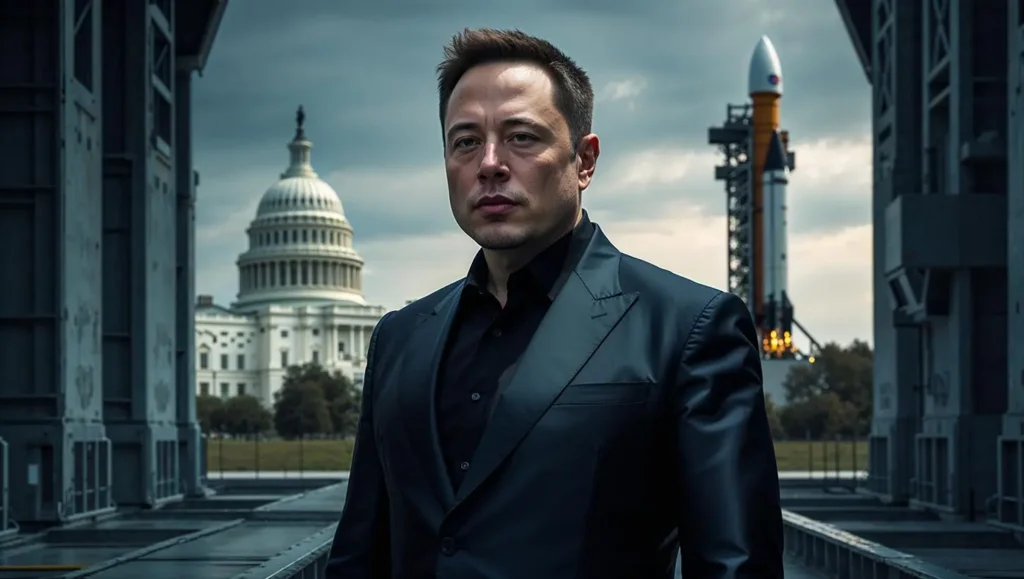
This essay will discuss Musk’s political career and the potential implications for American democracy of his increased governmental power.
From Silicon Valley rebel to White House insider
Elon Musk claimed to be a free thinker at one point. In the early 2000s, he donated to both Republicans and Democrats. He supported candidates like Barack Obama, Hillary Clinton, and Joe Biden. Musk claimed that ideas were more important to him than political parties and that he wasn’t particularly political.
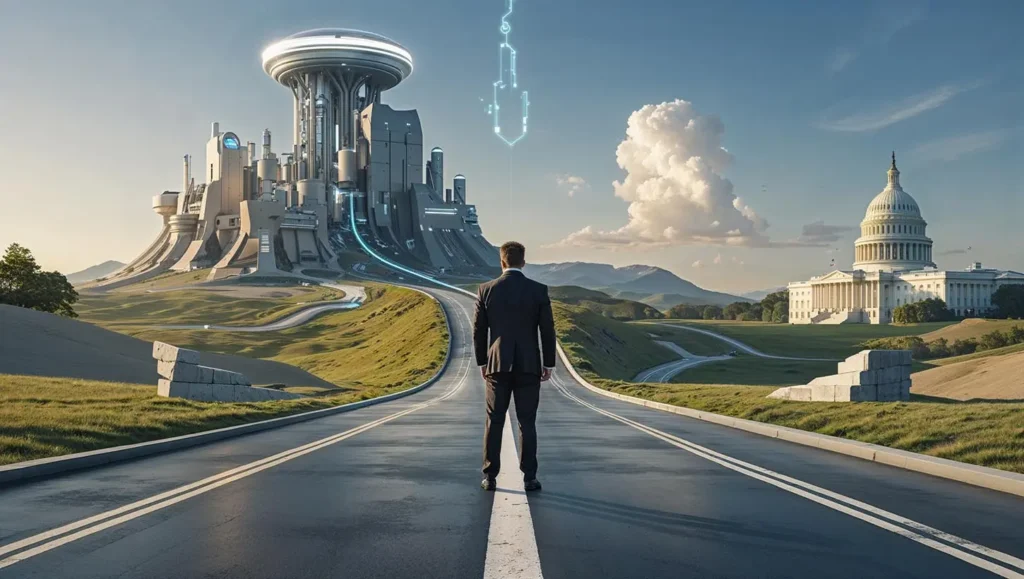
However, things changed in 2020 when COVID-19 struck. Musk was upset that Tesla factories had to close due to California’s lockdown regulations. He claimed that the government had too much power and that the regulations were fascist. That marked the beginning of his shift in political beliefs.
Politics changes as a result of pandemic rage.
After the lockdowns ended, Musk started to embrace Republican ideas. He joined the Canadian truckers who were demonstrating against vaccine regulations. He wrote about COVID that was disputed by medical experts. Many believed Musk was simply upset about the pandemic, but his new ideas were only the beginning.
In 2022, Musk publicly declared that he would cast his first Republican ballot. The Democratic Party, he claimed, had shifted too far to the left. Simultaneously, Musk decided to purchase Twitter, which he claimed was suppressing conservative viewpoints.
Taking Over Twitter and Establishing New Guidelines
In October 2022, Musk ultimately paid $44 billion for Twitter. Immediately following the transaction, he wrote, “The bird is freed,” to inform everyone of his intention to switch the platform. He dismissed 80% of Twitter’s employees, including numerous individuals responsible for removing offensive content. Musk brought back Trump’s account, citing his belief in “free speech for all.”
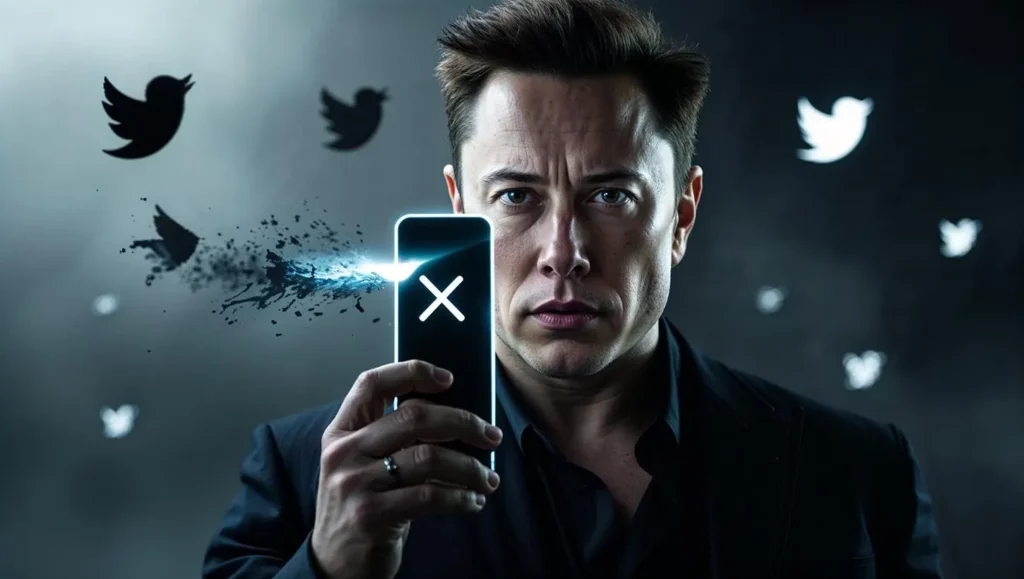
https://en.wikipedia.org/wiki/Acquisition_of_Twitter_by_Elon_Musk?utm_source=chatgpt.com
However, critics noticed something odd. Musk swiftly deleted some accounts, particularly those that were critical of him, but allowed others to reappear. In fact, he fired a Twitter boss in February 2025 for publicly disparaging him. Many began to wonder if Musk’s notion of “free speech” was actually just speech that supported his claims.
How Musk Moves from Business to Politics in His New Position
Musk stopped attempting to maintain neutrality by 2024. He voiced his opposition to Democrats like Vice President Kamala Harris and his support for Donald Trump. Political themes were disseminated via his social networking site, which he renamed to “X.”
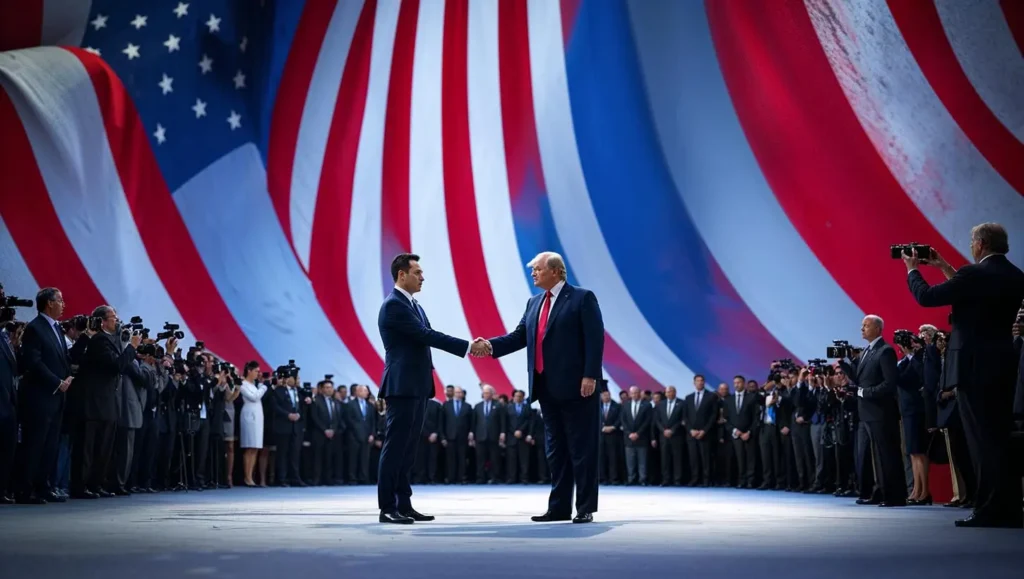
Musk fully supported Trump when someone attempted to harm him in July 2024. He contributed roughly $119 million to Trump’s campaign through an organization known as a Super PAC. Musk’s campaign events and social media helped Trump reach a wider audience.
Many were taken aback by this action because they recalled Musk’s prior support for Democrats. But now it made sense: Musk was approaching the next president.
The Emergence of an Unknown Administration
Trump’s victory in the 2024 election gave Musk even more authority. By early 2025, Musk was reportedly working closely with the Trump administration despite being unemployed. Before now, America had never seen a private investor with no connection to the government assist in running the nation.
Musk sent an odd message to government employees in February 2025. He instructed them to list “five reasons” for performing their duties. If they didn’t respond, they might lose their jobs. Many were alarmed and believed that this was a very poor use of authority. Nevertheless, Musk’s actions were supported by President Trump.
Is it risky to combine politics and business?
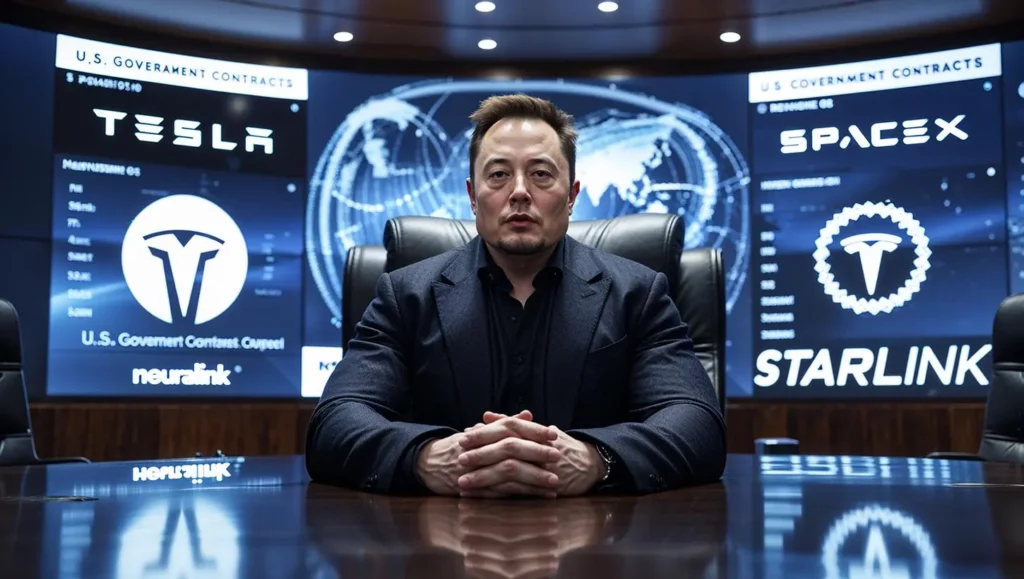
Musk owns numerous companies that rely on government regulations and contracts.
For instance:
Tesla receives tax benefits for producing electric vehicles.
The US is able to travel to space thanks to SpaceX.
Neuralink and The Boring Company collaborate on transportation and public safety.
The entire world is kept safe by his computer company, Starlink.
Because of this, some claim that Musk is using politics to benefit his companies.
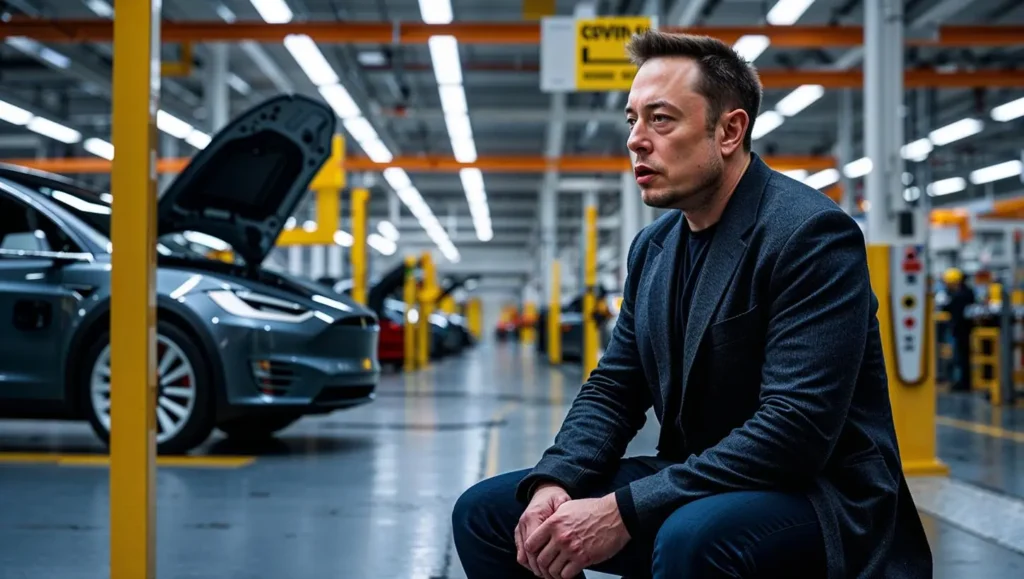
Some believe he genuinely thinks he can make things better. He frequently discusses the idea of managing the government more like a business. However, the government and business have different objectives. A company wants to turn a profit. The government must assist everyone and defend their rights, regardless of the type of customer.
From libertarian to power-hungry?
Musk initially appeared to support liberal viewpoints. He talked about new ideas, freedom, and less government. However, as he gained strength, he also advocated for more severe penalties and authority over those who disagreed with him. They claimed that Musk is now more of a “authoritarian libertarian,” meaning that he desires power over others but freedom for himself.
This kind of thinking can be detrimental to a democracy. A society must have laws that safeguard everyone, even those who disagree. When one wealthy individual controls the media, technology, and politics, it is difficult for common people to speak up or fight fairly.
Is this the beginning of a new approach to government management?
Important questions are raised by Elon Musk’s new position:
Can billionaires purchase power without seeking public office?
Should owners of tech companies assist in running the government as well?
What distinguishes public service from business?
If Musk could do it, why can’t other wealthy people? A democracy requires checks and balances. However, those checks aren’t always effective when one person controls both the government and the media.
Is Musk Establishing a Technocracy?
Musk has expressed his lofty long-term goals. He intends to establish a colony and a government on Mars using technology. According to that theory, everyone would vote on every topic using apps or websites. However, by controlling social media and influencing politics without being elected, Musk is already putting these theories to the test in the real world.
This is considered dangerous by some. Some believe that Musk’s big ideas and quick thinking could improve the government’s dysfunctional areas. But one thing is certain: American democracy has never operated like this.
The Final Question: Democracy or Technopower?
Elon Musk’s ascent to power is among the most bizarre tales in American political history. In a matter of years, he switched from funding Democrats to the Republican Party. She transformed Twitter into X and used it to gain significant political influence. Despite not being selected, he assisted in running the government.
Americans must ask themselves if Musk is good or bad for democracy as they look to the future. Is private power like this beneficial or detrimental?
The answer will determine not only Musk’s legacy but also the future of American democracy.
Elon Musk now supports Trump after previously supporting Democrats
His political shift to the right began with the outbreak.
He purchased Twitter, rebranded it as X, and utilized it to further his political agenda.
Despite not being elected, Musk currently holds a great deal of authority in the government.
His business objectives are frequently aided by his political influence.
There are those who argue that this is detrimental to democracy.
His admirers claim that he infuses traditional methods with fresh concepts.
The main query remains: Will the US government operate in this manner going forward?
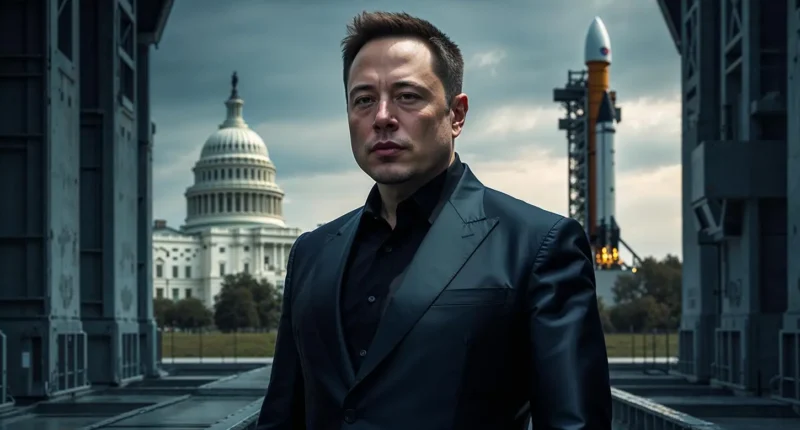

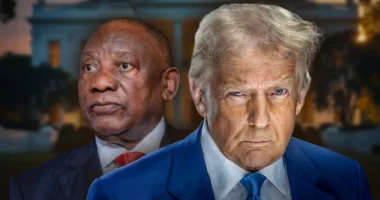
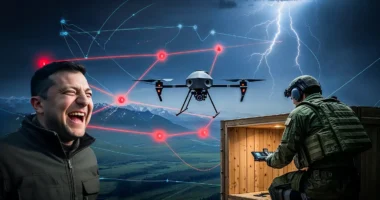






1 comment